North Korea-Russia Missile and Satellite Technology Cooperation
2024-1-19, Tara O
North Korean Foreign Minister Choe Son-hui and Russian President Vladimir Putin met at the Kremlin in Moscow, Russia, on January 16, 2024. The document detailed below indicates they discussed space technology cooperation, which includes missile and satellite technology.
Russian spokesman Dmitry Peskov said Choe’s visit is to further develop the ‘agreements that were reached at the Vostochny cosmodrome when Kim visited it, and based on the results of the negotiations that he had with Putin. Dialogue at all levels will continue…We look forward to intense and fruitful negotiations.’
On September 13, 2023, Kim Jong-un met with Putin in Russia’s far east. They met at the Vostochny space launch facility, where they discussed military matters, the war in Ukraine and Russia potentially helping North Korea with its satellite program.
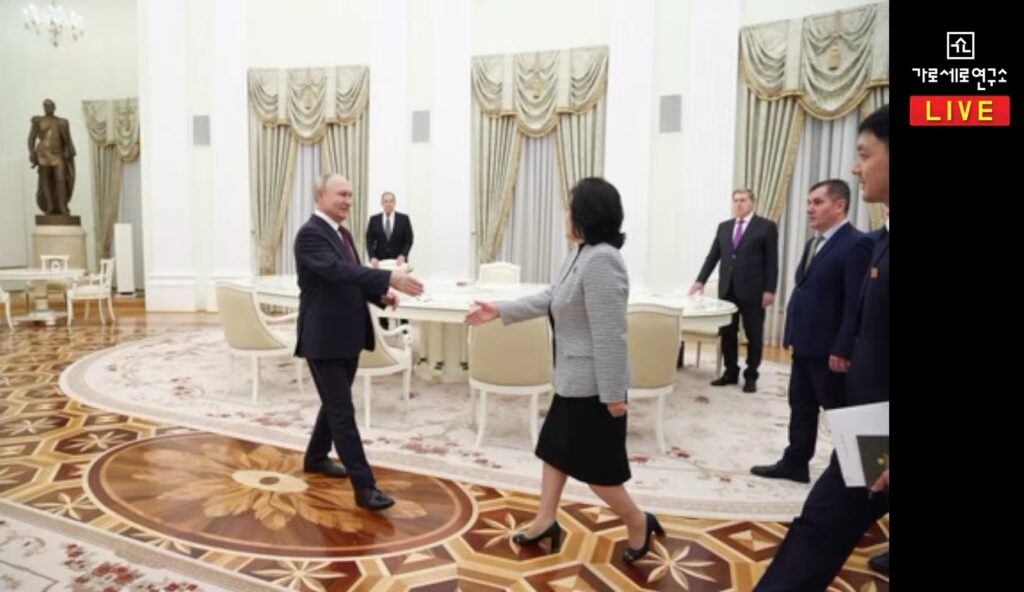
Above: Russian and NK Foreign Minister met at the Kremlin on January 16, 2024 (Source: Hoverlab)
As the photo above shows, Russian President Putin and North Korean Foreign Minister Choe met at Kremlin. Choe’s interpreter to her right is holding a document.
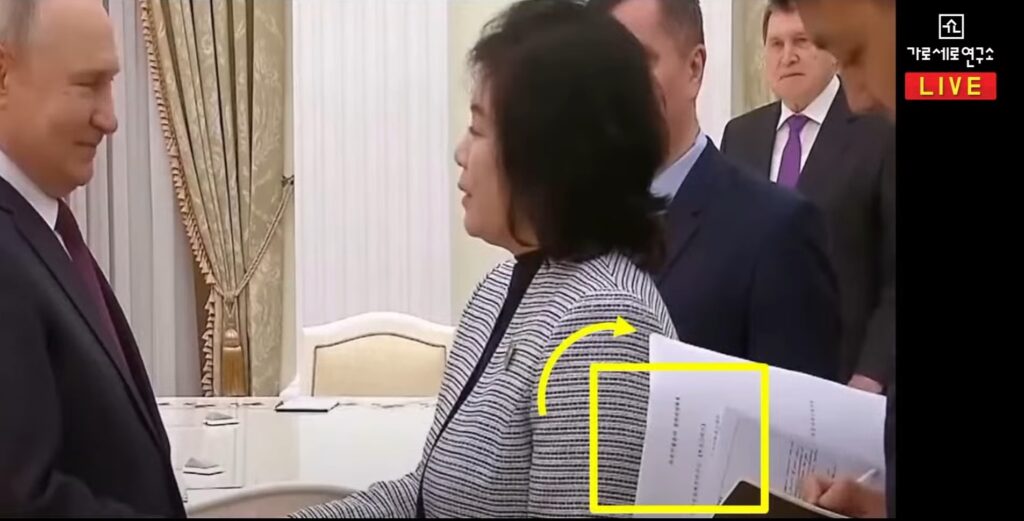
Above: The yellow square shows the document written in Korean language (source: Hoverlab)
South Korean media showed the video, but only focused on the meeting and that Russia will send at least 100 Russians to North Korea next month for tourism. What was not reported is what is written on the document that the interpreter was holding, which indicates missile and satellite technology transfer.
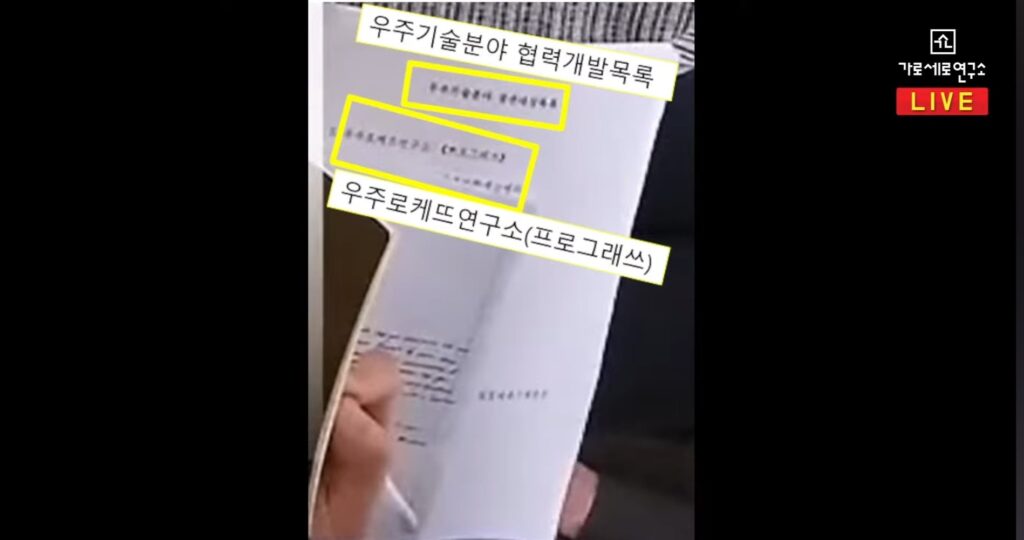
Above: “List of Cooperative Developments in the Field of Space Technology” and “Space Rocket Research Institute (Progress)” (Source: Hoverlab)
Citing the National Intelligence Service, journalist Kim Se-ui of the Hover Lab (가로세로연구소), one of the popular YouTube news channels in South Korea, showed the enlarged document’s first page, which shows titles as follows:
“우주기술분야 협력개발목록”
“우주로케뜨연구소(프로그래쓰)”
Direct translation into English:
“List of Cooperative Developments in the Field of Space Technology”
“Space Rocket Research Institute (Progress)”
Space technology includes satellite technology. North Korea may refer to the Russian Space Research Institute (longer form: Space Research Institute of the Russian Academy of Sciences) as “The Space Rocket Research Institute” in Korean. Progress (Russian: Прогресс) is the name of a Russian spacecraft for delivering cargo to space. The term space rocket includes space launch vehicles, which contain the same technology as missiles.
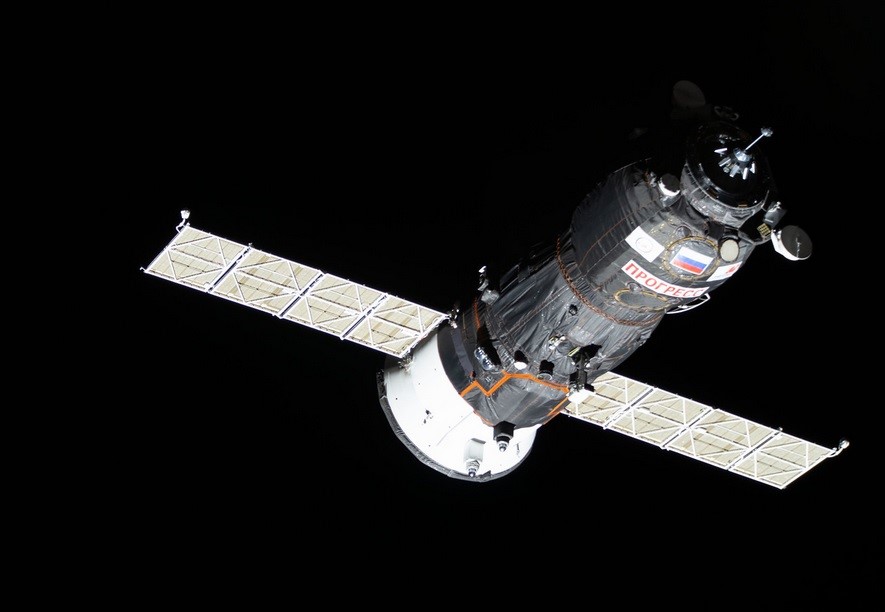
Above: Progress, a Russian spacecraft (source: NASA)
On January 15, 2024, the same day as when the North Korean foreign minister and her delegation left Pyongyang for Moscow, North Korea launched an intermediate range ballistic missile (IRBM). KCNA stated it was to test a new multi-stage, high-thrust solid-fuel engine as well as an intermediate-range hypersonic maneuverable controlled warhead.
North Korea does not have a hypersonic wind tunnel capable of testing such a warhead design, thus it’s highly unlikely it designed and developed a hypersonic warhead on its own, which indicates it has likely already received technology transfer and technical assistance from elsewhere.
As for the 100+ tourists who already are registered to visit North Korea, the cost is $750 per person for a 4-day, 3-night tour. Will space technology engineers and technicians be included among them?
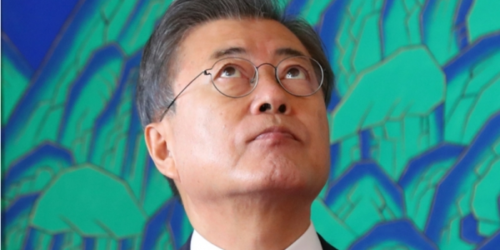
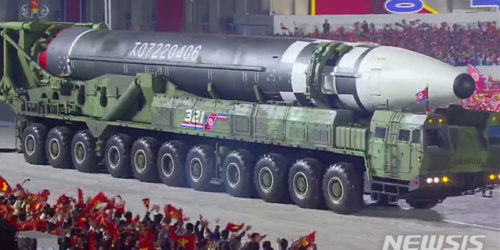
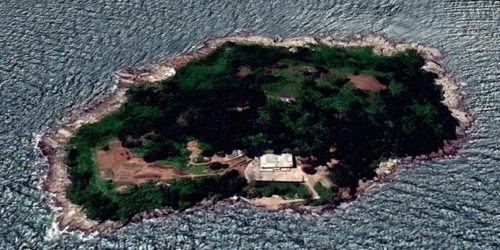
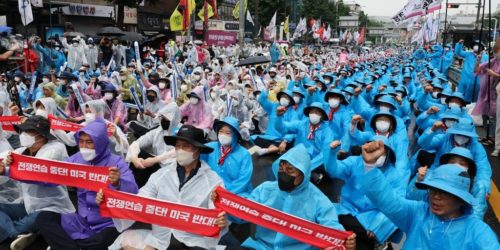
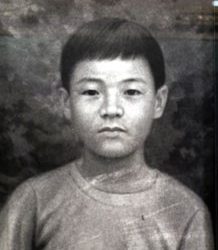
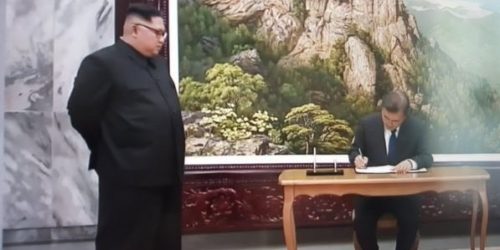
This interchange between the Russian Empire and the Kingdom of North Korea is unsurprising, indeed almost expected. The renewed ties verify the saying, “The enemy of my enemy is my friend.” Both regimes have long standing animosity towards the United States. Indeed, the Soviet Union, now the Russian Empire, aided and abetted the North Korean attack on South Korea on 1950.